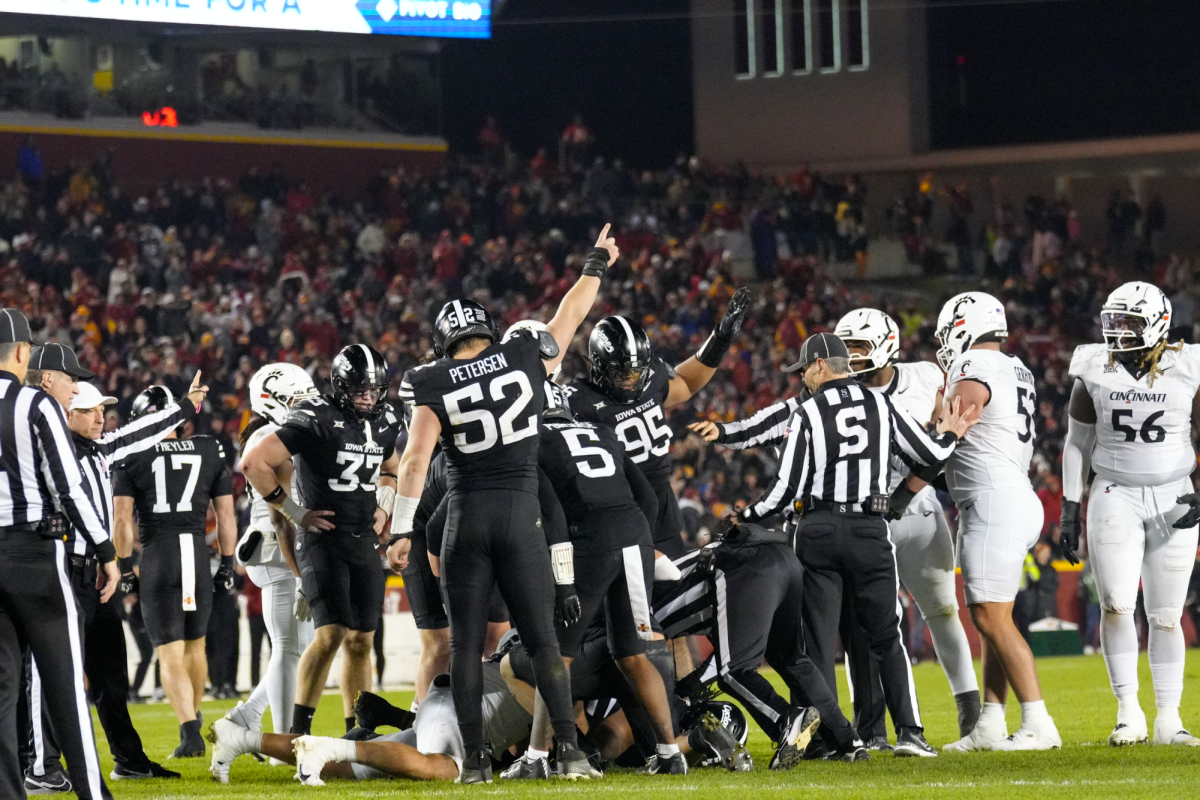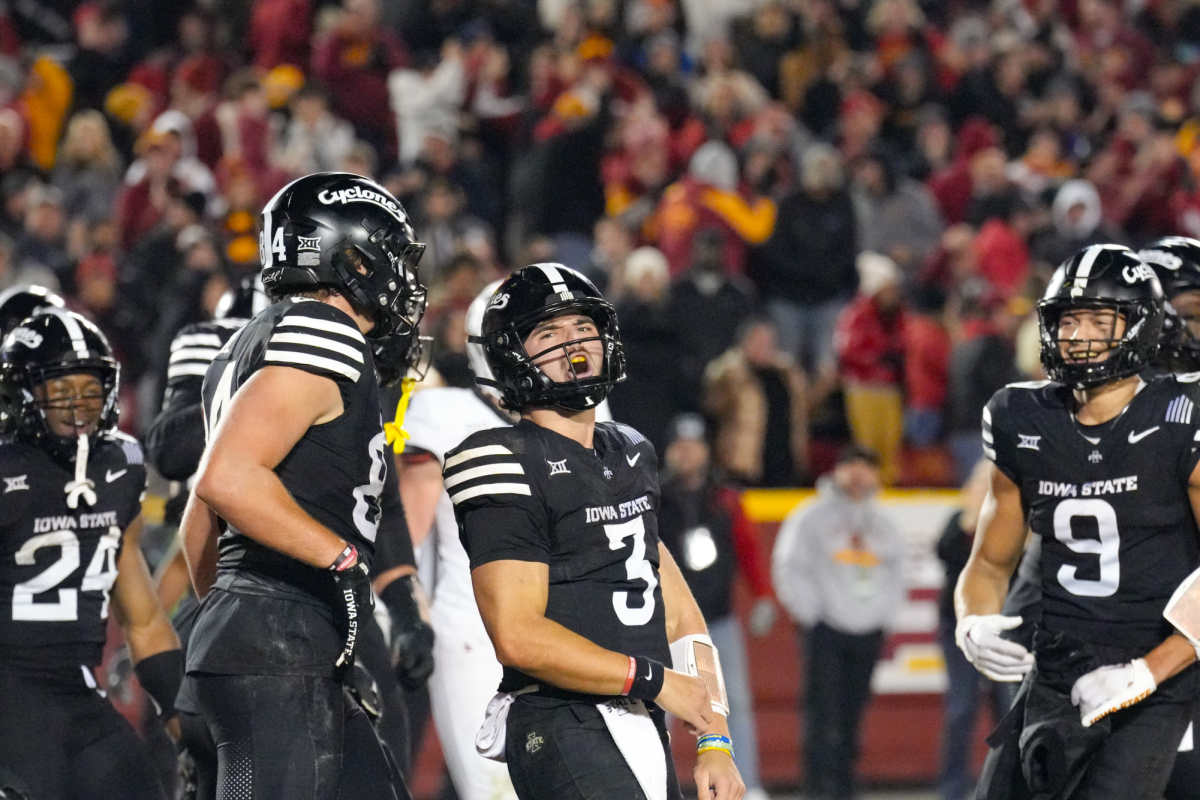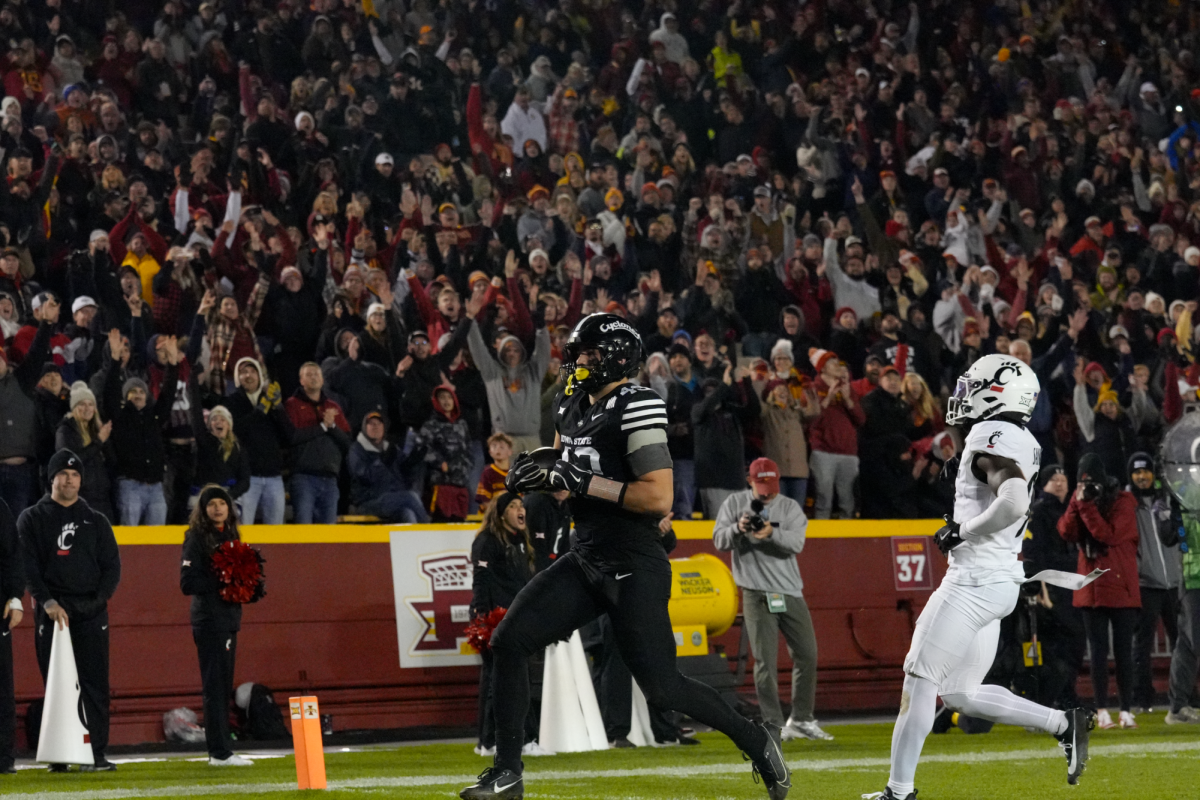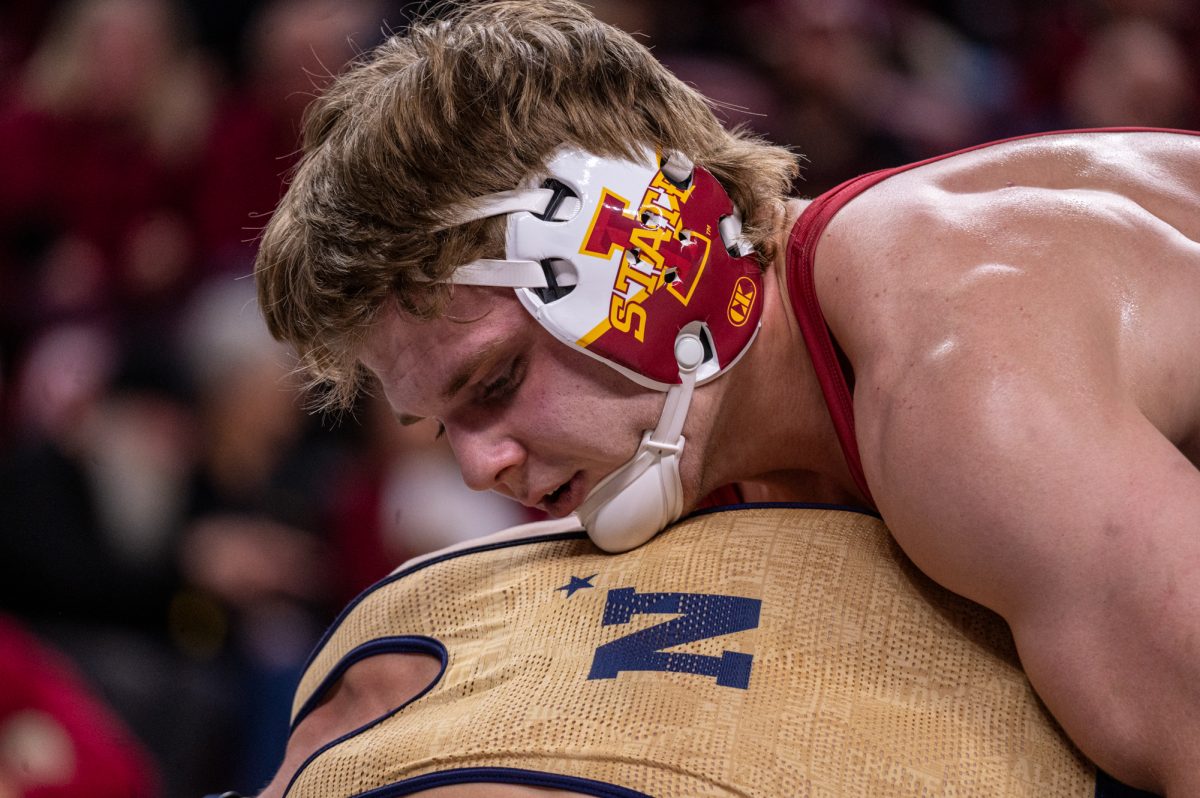Collecting for a living
April 17, 2007
Sports cards originated in cigarette packs and were bought for the gum they were packaged with.
Now, the growth of the hobby has led to dozens of product lines, and with the demand for autographs and memorabilia, a single pack can cost hundreds of dollars.
According to an Associated Press report, sales of sports cards in the United States rose by 11 percent in 2006. In Ames, two card shops now operate on the same block on Main Street – Clark Sports Collectibles and Main Street Sportscards.
Despite the large college population, their customers are usually very young, middle-aged or older.
“Some of it is getting more expensive where you need a pretty decent job (to afford it),” said Bill Ford, owner of Main Street Sportscards, 305 Main St. “I don’t think a paper route nearly covers it these days.”
For example, in each two-pack box of the 2007 Triple Threads baseball collection guarantees an autographed card and a “Triple Relic” card, which features three pieces of a jersey or bat from three different players.
It has many current and former stars, including Babe Ruth, which has made the brand one of the most desirable on the market. Each 12-card box retails at more than $180.
The traditional, picture-based brands have increased to $2 to 4 a pack. Still, the disposable income isn’t there for many college students to build or update a collection.
Doug Clark, owner of Clark Sports Collectibles, 328 Main St. Suite 120, stopped collecting in his teens, but was “one of the lucky ones” who had his collection saved by his mom. The Ames native said the majority of his business from the collegiate community is from international students.
“When we see a lot of people really getting back into collecting is after they’ve gotten out of college; once they’ve started getting more disposable income, because that’s what this business is about,” Clark said. “There is nothing here you need to have.”
Clark picked up his hobby just prior to moving to Iowa in the late 1980s. He was driving on a California freeway when he saw a traffic jam.
“Someone driving up this on-ramp had accidentally dumped two cases of ball cards, baseball cards, 1988 Donruss,” said Clark, who started his shop seven years ago and manages it full time. “They hit the pavement and just exploded. There were still boxes. I grabbed some boxes along with everybody else and grabbed as many packs as I could.
“Of course, we were doing civic duty: We were cleaning up the road so traffic could flow again. But that’s actually what got me started again.”
Darryl Ramon, who has worked at Main Street Sportscards since 1994, graduated with a degree in finance from Iowa State but decided to keep a job at the shop. He believes the hobby is cyclical, as people often stop before picking it back up.
“I worked in college at Quik Trip,” Ramon said. “I opened a box of 1989 Upper Deck baseball that we had in. At the time Ken Griffey Jr. was the hot rookie . every time I got a pay check from Quik Trip I bought a box until they ran out. That’s when I got back into it.”
Ford picked up the hobby in his 20s and graduated in 1980 with a double major in animal ecology and environmental studies. After graduation, he kept his job with UPS and opened a card shop. He has kept both jobs ever since.
Ford said the business has changed a lot. The introduction of eBay into the sports cards market has hurt walk-in sales, he said, but also provides an outlet for sales.
Ford said eBay sales account for 20 to 25 percent of his card income, while Clark estimated half of his sales come from the site.
“It seems like they’re trying new things, putting new stuff in the packages,” Ford said. “Each time it gets more and more expensive. I keep think ‘Well, this isn’t going to fly.’ Seems like these packs for $350, or you have some for $550 or some for $800 – you think no one will buy them. They do. Maybe not many, but they seem like they’ve figured out there is a market for that type of stuff.”
Clark said he prefers people to enjoy the hobby, as opposed to looking for a winning lottery ticket. He has advised people to hold onto their collections.
“If it becomes a headache because of the money and stuff, you should rethink [why you are collecting],” Clark said.






